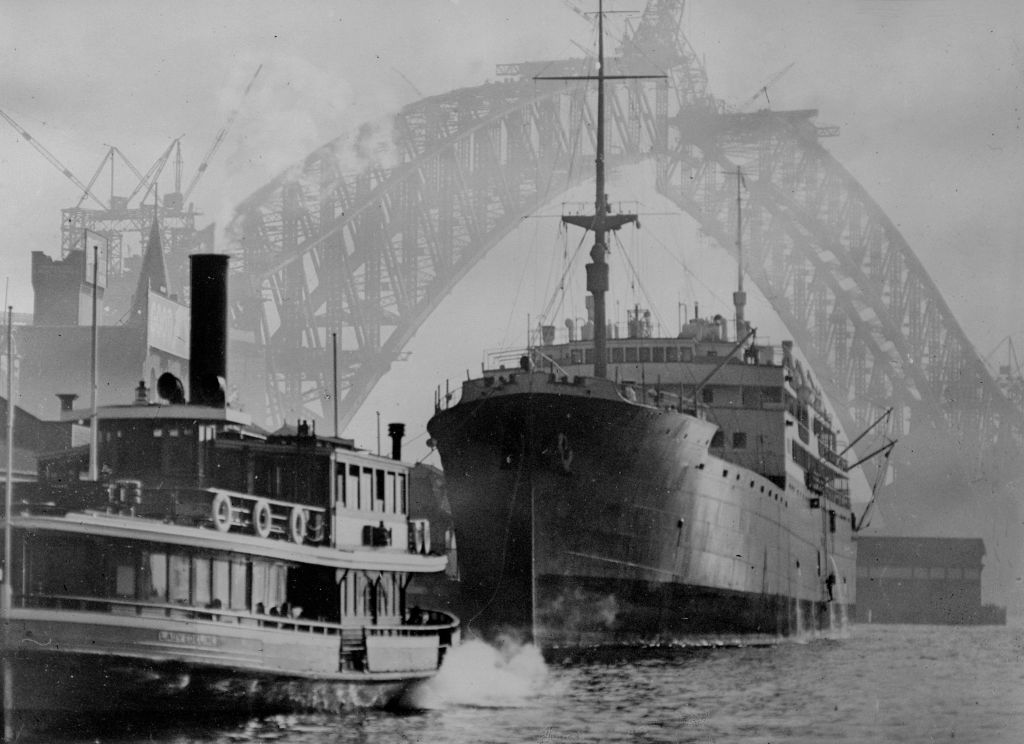Why a strategic fleet won’t work for Australia
Posted By Jim Wilson on December 12, 2023 @ 14:30

Failure has been the fate of government-owned or -subsidised fleets, and protected shipping markets, throughout Australian history.
History, economics, shipping trends and strategy tell us that the government’s strategic fleet policy [1] will also fail—because the premises on which it is based are flawed.
Locally based shipping will be expensive. Even the proponents of the policy admit [2] that a local ship would cost between $5 million and $7 million more than an international ship.
Domestic shippers (the people who own the cargo and who decide how their cargo will be moved) may decide that the strategic fleet is too expensive, and they may put their goods onto trucks instead. That’s a bad outcome because trucks emit [3] huge amounts of greenhouse gases, toxic gases and materials that harm human and animal health. In Australia, trucks already emit more greenhouse gases than air, rail and sea transport combined [4].
Some might argue that while these health and economic concerns are obviously not negligible, strategic defence issues are what’s important. That’s fair enough. But the economic stuff directly ties into strategy and defence. A recent Strategist piece [5] by retired rear admiral Rowan Moffitt talks about a wargaming exercise years ago in which defence forces were faced with the challenges of moving huge volumes of materiel with the help of ‘STUFT’—ships taken up from trade. He pointed out that there weren’t really any Australian ships back then to be taken up from the trade. That is even more true now.
So it’s game, set and match to the strategic fleet, right? Wrong.
You see, the policy won’t create a fleet of STUFT-ready ships. Sure, it might put a few ships under the Australian flag for a couple of years or so. But the whole thing is going to fail because of its economics.
Shippers call the shots. They decide whether to ship. If coastal shipping is too expensive, they will either push cargo onto trucks or they will ship using the international fleet. The Australian company Brickworks already reckons it’s cheaper to ship bricks to Sydney from Spain [6] instead of Perth, for example.
If using the strategic fleet is too expensive—which it will be, there’s just no way around that—then shippers won’t pay if they have other options. If shippers don’t use the fleet, it won’t be able to sustain itself and will fail. Therefore, there won’t be any ships to which the concept of STUFT can apply.
Okay, you might be thinking, we can force shippers to use the strategic fleet.
But that won’t work either. If the cost is too high, and if that cost can’t be passed on to end users, the shippers might refuse to ship at all. And they will close their Australian businesses. This is no theoretical risk; it has happened.
Consider Penrice Soda Ash, which made a high-volume, low-value product—perfect, in other words, for shipping by sea. But the Coastal Trading Act 2012 passed, and coastal shipping became too costly. Penrice tried to import materials from overseas. But it couldn’t make the numbers add up. The company went bust and everyone lost their jobs.
In any event, the strategic fleet is not necessary. There are many examples in shipping history of merchant ships sailing into conflict zones.
In World War II, the Nazis were unable to stop merchant shipping. In the 1980s ‘tanker war’ between Iran and Iraq, both sides were targeting tankers and crew, yet merchant shipping didn’t stop. In the Somali piracy crisis of the 2000s, merchant shipping didn’t stop. In the Southeast Asia piracy crisis, merchant shipping didn’t stop. In the first and second Gulf Wars (1990 and 2002), the US military chartered commercial ships to deliver cargo to the war zone.
In all these scenarios, and more, merchant ships and crews braved conflict zones and delivered the goods.
Precedents tell us why this latest Australian fleet policy will not work because of bad economics. It failed in 1928 (Commonwealth Lines). It failed in 1995 (Stateships). It failed in 1998 (ANL). It failed in 2012 (Coastal Trading Act). It failed in 2013 (Western Australian government-subsidised service). It will fail again.
And it’s a policy that’s not strategically necessary. There’s no need to pay for an expensive domestic fleet to fulfill strategic requirements when the international fleet can do the job just as well (or better) at a fraction of the cost. All a Defence official must do is appoint a shipbroker to hire the vessels and do the paperwork.
The evidence is clear: the strategic fleet idea is bad policy, and it should not proceed.
Article printed from The Strategist: https://www.aspistrategist.org.au
URL to article: https://www.aspistrategist.org.au/why-a-strategic-fleet-wont-work-for-australia/
URLs in this post:
[1] strategic fleet policy: https://www.infrastructure.gov.au/sites/default/files/documents/australian-government-response-to-the-strategic-fleet-taskforce-final-report.pdf
[2] admit: https://www.afr.com/politics/a-hand-behind-their-back-million-dollar-disadvantage-for-australianflagged-ships-20190124-h1affh
[3] emit: https://envhealthcenters.usc.edu/wp-content/uploads/2016/11/Driving-Harm.pdf
[4] air, rail and sea transport combined: https://www.climatechangeauthority.gov.au/reviews/light-vehicle-emissions-standards-australia/opportunities-reduce-light-vehicle-emissions
[5] A recent Strategist piece: https://www.aspistrategist.org.au/lets-get-behind-an-australian-merchant-navy/
[6] cheaper to ship bricks to Sydney from Spain: https://www.abc.net.au/news/2016-03-16/bricks-cheaper-to-ship-from-spain-than-from-perth-to-sydney/7249646
Click here to print.